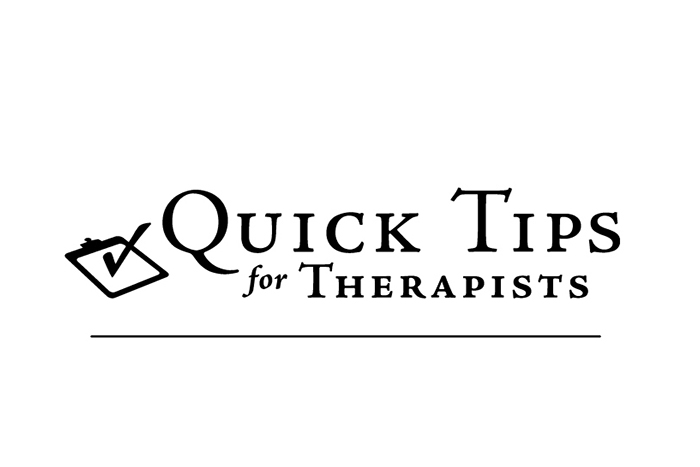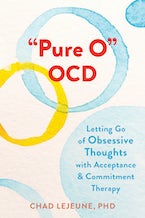As therapists, most of us have been there at one time or another. You’re in the middle of a session with a client and are struck by a sudden sense of déjà vu. It’s not just that you’re covering familiar ground, it’s that you’re covering it in exactly the same way. It may even feel like a replay of your very last session. As though that session never happened at all. When this happens repeatedly with the same client, you may be observing symptoms of obsessive-compulsive disorder (OCD).
A low tolerance for uncertainty or ambiguity lies at the heart of OCD. This leads to circular, repetitive examination of certain thoughts (obsessions), and efforts to reduce the ambiguity through checking or seeking reassurance (compulsions). One of the most ambiguous things we experience as human beings are our own feelings. The way we feel about anything—whether it’s a job, where we live, or a romantic partner—tends to fluctuate and change from day to day, even from moment to moment. Clients with OCD may seek clarity and certainty about these feelings that is unattainable.
Therapy can become a forum for “obsessing out loud.” Getting a therapist to review or repeat interventions, or answer certain questions, can be a ritual to temporarily relieve anxiety. As with any compulsive ritual, it has to be repeated regularly, resulting in your “Groundhog Day” experience.
If you suspect this is the case, start by sharing your formulation with the client. Rather than seeking clarity or reassurance, suggest that a better goal for therapy may be to increase their tolerance for ambiguity. One way to do this is by agreeing that you will consistently respond to their obsessive questions in an ambiguous way:
- “Maybe.”
- “I don’t know.”
- “I suppose anything is possible.”
Clients may find this frustrating at first, but with practice it can lead to more comfort with those murky, ever-shifting feelings and open-ended questions that are a big part of life.
Chad LeJeune, PhD, is a clinical psychologist, and professor of psychology at the University of San Francisco. He is a founding fellow of the Academy of Cognitive and Behavioral Therapies. He has been a practitioner of acceptance and commitment therapy (ACT) since its inception in the early 1990s. He is author of The Worry Trap.



 2024 Peace Playbook: 3 Tactics to Avoid Clashes with Your Partner
2024 Peace Playbook: 3 Tactics to Avoid Clashes with Your Partner